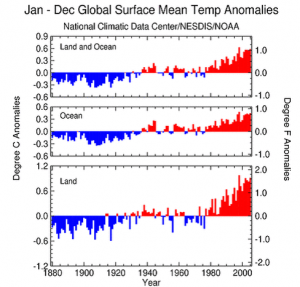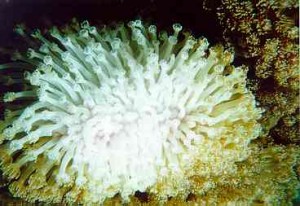Coral reefs are home to one of the planet’s most unique and productive ecosystems and are known to contain one of the largest amounts of biodiversity, second only to the tropical rainforests. There is a delicate balance that needs to be maintained within this ecosystem; however that environment is now changing at a rapid pace.
Coral reefs are usually found in the shallow waters surrounding the shoreline of islands and continents. There are different reef structures; the most common form of reef that grows seaward from the shore is a fringing reef that borders the shoreline, however there are barrier reefs that are separated from the land by an expanse of water. The most famous example of this type of reef is The Great Barrier Reef, the World’s largest coral reef of the coast of Queensland, Australia.
The abundance of life that reside on the coral reefs around the world range from invertebrates, some which are most commonly recognised are sea urchins and giant clams, to vertebrates which includes Dolphins, Sharks and the major variety of fish that are most commonly seen in large numbers on any reef. It is the many species of coral that contribute to the structure of the ecosystem and survival of the marine life that use the coral for food, settlement and shelter from the predators that frequently visit the reefs. It is not just marine life that thrives from the coral reefs; local populations use the reefs for fishing as there should be such a high diversity of fish. Coral reefs bring tourists from all over the world; The Great Barrier Reef attracts around 2 million visitors each year and an estimated USD 700 million to 1.6 billion (Carr and Mendelsohn, 2002).
Though the reefs should appear to be thriving with the diversity of species that live on them, evidence suggests that the coral reefs are in fact declining in numbers all over the world. The decrease in the corals comes from elevated coral bleaching which is due to the water becoming more acidic, as a result in the rise in temperature of the world’s oceans. When corals bleach, they expel the zooxanthellae, which results in corals losing their pigment and appearing to be the white colour of the coral skeleton beneath the living tissue (Levinton, 2011). Ocean acidification is due to the increase of Carbon Dioxide (CO2) in the atmosphere during the 20th Century has “driven an increase in the global oceans’ average temperature by 0.74oC and sea levels by 17cm” (Hoegh-Guldberg et al, 2007). The graph below shows the increase in temperature on both land and sea through the past 100 years. The acidification of the ocean comes from when the CO2 emitted from numerous sources enters the oceans and reacts with the water to produce carbonic acid, which in turn dissociates to form bicarbonate ions, reducing the availability of carbonate. Corals are calcifying organisms that produce calcium carbonate (CaCO3), therefore the decreasing carbonate concentrations reduce the rate of calcifications of the coral (Hoegh-Guldberg et al, 2007) and if “calcification declines then reef-building capacity also declines” (Kleypas et al, 1999).
David D. Houghton, 2007)
Restoring the Reefs
As coral reef numbers decline due to over fishing, tourism activity and now bleaching, there is more need for research to establish what would be the long term effects of the loss of corals to the ecosystem. The bleaching of the corals does not always mean that it will die, they come under stress due to the rise in ocean temperature and they lose the nourishing algae which then exposes their carbonate mineral structure, as shown in the picture, The coral has not fully bleached. It is only if the stresses continue that the coral will then not be able to regain its algae and the coral will die off.
| The carbon mineral structure of a coral when it is partially bleached. |
(Hoogesteger)
An approach to re-building some of the degrading reefs is coral gardening, a restoration project that is now becoming more recognised. The Bahá’í International Online Newsletter One Country (2002), recognises the conservation work being carried out by Marine scientist Austin Bowden-Kerby is heading an initiative to restore the coral reefs around the shores of Fiji. Dr. Bowden-Kerby’s methods are not to illuminate human activity, but to carefully manage just how much human influence is involved. The Coral Garden Initiative promotes community participation and helping the local people to understand and care for the reef, which could be frequently used for food and resources. There are sections of the reef that have a strict no fishing zone so that the newly planted and restored corals can grow so that the marine life can start to build up numbers in diversity. As part of the on-going research that is being carried out, Dr. Bowden-Kerby has started to cultivate parts of the reef by introducing some ‘reef friendly’ marine species such as the giant clam to establish their regeneration and effects on the reef. Dr. Bowden-Kerby has also begun a project in the Solomon Islands in partnership with the Solomon Islands Development Trust (SIDT) to establish small scale conservation areas.
A large percentage, roughly 70-80% of the world’s coral reefs are located on the shores of developing countries (Bowden-Kerby, 2003), where fishing communities have more human impact on the reefs and are a large factor in the destruction of the habitat. Bowden-Kerby’s work with the local people is just as important as the actual coral gardening itself. The education in how to manage and care for the reefs could help maintain ecosystem and be involved in the sustainability of the reefs and the marine life that live on them.
“High human population densities on the world’s tropical shores and changing environmental conditions have had a significant and detrimental impact on coral reef systems” (Pandolfi et al. 2003). There is an abundance of people that travel to see coral reefs on tropical shores, yet there is no certainty that the reefs are being protected, either from fishing or from coral destruction from divers. The negative human influence on the coral reef systems have possibly accelerated their decline and scientists and conservation specialists are still not fully aware of the long term affects that could be caused by the disappearance of the reefs, as well as the effect of restoration.
References
Liam Carr and Robert Mendelsoh, 2003. Valuing Coral Reefs: A Travel Coast Analysis of the Great Barrier Reef. A Journal of the human Environment. AMBIO: 32(5): 353-357.
O. Hoegh-Guldberg, P. J. Mumby, A. J. Hooten, R. S. Steneck, P. Greenfield, E. Gomez, C. D. Harvell, P. F. Sale, A. J. Edwards, K. Caldeira, N. Knowlton, C. M. Eakin,R. Iglesias-Prieto, N. Muthiga, R. H. Bradbury, A. Dubi, M. E. Hatziolos, (2007). Coral Reef Under Rapid Climate Change and Ocean Acidification. Science. American Association for the Advancement of Science (Science. AAAS) Vol. 318 no. 5857 pp. 1737-1742
DOI: 10.1126/science.1152509.
Joan A. Kleypas, Robert W. Buddemeier, David Archer, Jean-Pierre Gattuso, Chris Langdon, Bradley N. Opdyke (1999). Geochemical Consequence of Increased Atmospheric Carbon Dioxide on Coral Reefs. Science American Association for the Advancement of Science (Science AAAS). Vol. 284 no. 5411 pp. 118-120
David D. Houghton, Y. Ding, D.J. Griggs, M. Noguer, P.J. van der Linden, X. Dai, K. Maskell, C.A. Johnson, (2007). Climate Change 2001: The Scientific Basis.
J. Hoogesteger (1998) www.marinebiology.org/coralbleaching.htm Coral Reef Bleaching. Odyssey Expeditions: Tropical Marine Biology Voyages.
One Country. The Online Newsletter of the Bahá’í International Community. Vol. 14 Issue 3.
Austin Bowden-Kerby, (2003) Coral Transplantation and Restocking to Accelerate the Recovery of Coral Reef Habitats and Fisheries Resources Within No-Take Marine Protected Areas: Hands-On Approaches to Support Community-Based Coral Reef Management. E –Repository Of Ocean Publications.org.
John M. Pandolfi, Roger H. Bradbury, Enric Sala, Terence P. Hughes, Karen A. Bjorndal, Richard G. Cooke, Deborah McArdle, Loren McClenachan, Marah J. H. Newman, Gustavo Paredes, Robert R. Warner, Jeremy B. C. Jackson (2003). Global Trajectories of the Long-Term Decline of Coral Reef Ecosystems. Science American Association for the Advancement of Science (Science AAAS). Vol. 301 no. 5635 pp. 955-958
DOI: 10.1126/science.1085706

